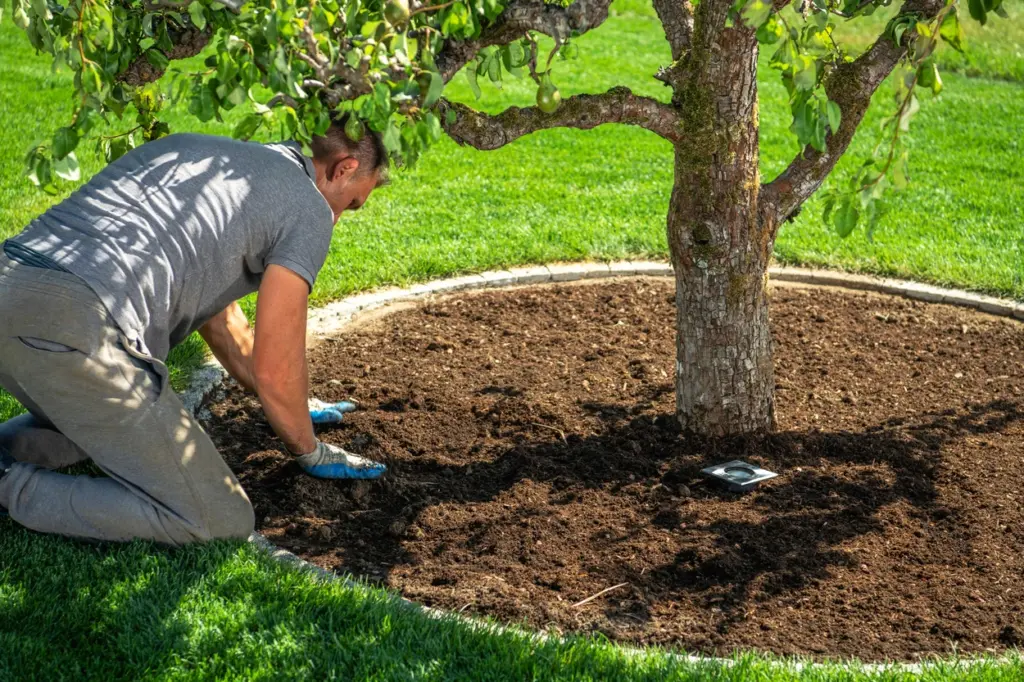Gardening
Mulch for Landscaping: Everything You Need to Know
Mulch is an essential component of landscaping, offering several benefits for plants and your garden. It helps with moisture retention, weed suppression, soil quality improvement, and enhances the aesthetic appeal of your space. Here’s a comprehensive guide to help you choose the right mulch for your landscaping needs.
Common Types of Mulch
- Organic Mulch
- Wood Chips and Bark: These are some of the most common and widely used organic mulches. They are beneficial because they decompose over time, adding nutrients back to the soil.
- Compost: Used for its soil-enriching properties, it breaks down quickly to feed plants.
- Stone Mulch
- This includes materials like gravel and stone, which don’t decompose and are ideal for areas vulnerable to erosion, such as hills or around downspouts. While stone mulch doesn’t improve soil quality like organic mulch, it provides great stability and a low-maintenance solution.
Which Mulch Keeps Its Color the Longest?
- Natural Organic Mulch: These will generally turn gray or brown within a year depending on sunlight exposure. However, dyed mulch (e.g., red, black) retains its color for 2-3 years and is processed with vegetable dyes.
- Stone Mulch: It doesn’t fade over time, although light-colored stones may require periodic cleaning to maintain their fresh appearance.

Will Mulch Work Everywhere?
Mulch isn’t suitable for all areas:
- Organic Mulch: In damp, low areas, organic mulch can retain too much moisture and encourage pests. It may also cause issues if applied around plants sensitive to too much moisture.
- Stone Mulch: While stone won’t decay, it can cause shallow plant roots to overheat if applied incorrectly.
Chunky Mulches Last Longer
Mulches made from larger pieces (e.g., pine bark nuggets) will decompose more slowly compared to finer mulches (e.g., shredded wood). Larger pieces are ideal if you want longer-lasting results with fewer applications.
Will Mulch Stop Weeds?
Mulch can’t fully eliminate weeds but can significantly reduce them. Apply mulch about 4 inches deep to prevent weed seeds from germinating. However, weeds that have already rooted will still push through.
How Thick Should I Apply Organic Mulch?
- Apply about 3 to 4 inches of organic mulch to retain moisture and suppress weeds.
- Around plants, pull the mulch back 6 inches to prevent rot from excessive moisture.
- For slopes, shredded mulch applied about 6 inches deep will help it stay in place.
Mulch Calculator
To calculate how much mulch you need:
- Multiply the length and width of your garden bed (in feet).
- Divide by 3 to get the required volume in cubic feet to cover the bed with 4 inches of mulch.
For large areas, buying mulch in bulk might be more economical than purchasing bags.
Should I Use Landscape Fabric Under Mulch?
- Under Stone Mulch: It’s helpful to use porous landscape fabric to prevent the stones from sinking into the soil and to control weed growth. Be sure the fabric allows water and air to pass through.
- Under Organic Mulch: It’s generally unnecessary and may hinder the mulch from decomposing and enriching the soil.
How Do I Keep My Stone Mulch Clean?
Stone mulch can be challenging to keep clean. Use a leaf vacuum or a blower to remove debris, especially around trees. Regular maintenance will help maintain its aesthetic.
By selecting the right type of mulch for your needs and properly applying it, you can achieve a more beautiful, healthier garden with less maintenance.